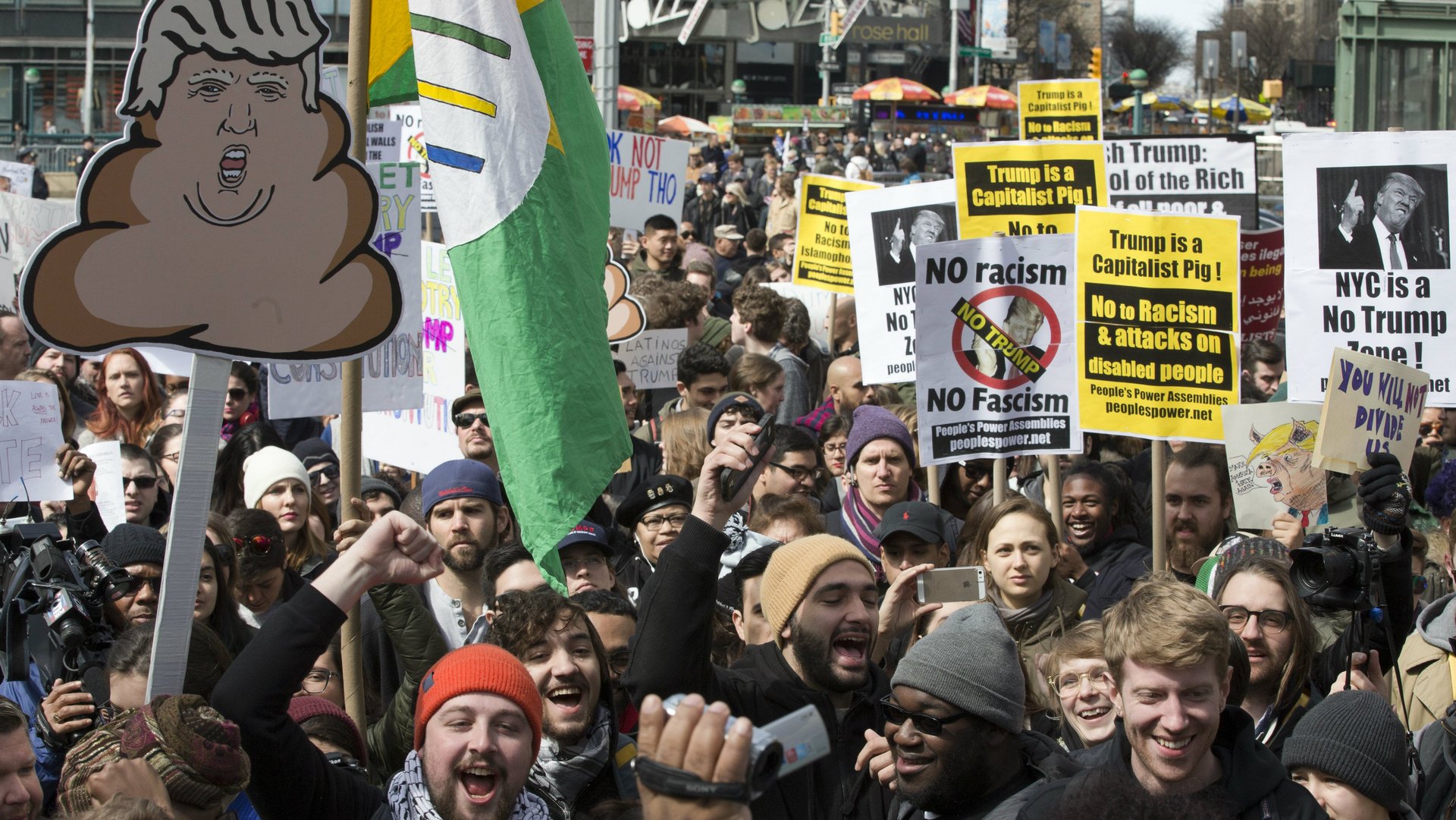Skipping Saturday’s protests could be the most ethical choice Trump opponents can make
As luminaries from Jon Voight to the Riverdance guy descend on Washington DC for the inauguration of Donald J. Trump, many critics of the next US president are planning protests closer to their homes.


As luminaries from Jon Voight to the Riverdance guy descend on Washington DC for the inauguration of Donald J. Trump, many critics of the next US president are planning protests closer to their homes.
An estimated 1 million people are expected at anti-Trump demonstrations in all 50 U.S. states and 32 countries. There have been calls on Twitter to boycott even the televised broadcast of the Jan. 20 ceremony, and to deprive Trump of his much-beloved ratings by turning televisions to another channel during the swearing-in. (Don’t bother. Unless you belong to one of the 40,000 U.S. Nielsen households, this will have no effect on inaugural ratings.)
On the other hand, unless you happen to be the US Supreme Court chief justice or someone else with a direct role in the transition of power, ethicists say, you can avoid the ceremony entirely without shirking any duty as a citizen. “Nothing is going to happen there that is going to help you become a more informed voter,” says Jason Brennan, an associate professor of strategy, economics, ethics, and public policy at Georgetown University’s McDonough School of Business.
Brennan goes a step further. Protesting the mere fact of Trump’s presidency rather than a specific policy is ineffective, he says.“Honestly, I think these sorts of protests are the equivalent of watching a football game while wearing a team shirt and painting the colors on your face,” he says. “It makes you feel better about yourself but doesn’t do much. You’re consuming cheap altruism.”
Further, thanks to the way that we tend to think about our own moral behavior, these public displays of political identity could actually hurt protestors’ long-term goals. The potential harm comes from a phenomenon known as moral self-licensing. When we do something we perceive as good, like attending a protest march, we give ourselves permission to do something bad, like skipping political activities with arguably more consequence. In other words, moral self-licensing can thwart our efforts to make the right ethical choices.
“There are times when you should step out and be a hero and this [inaugural protests] isn’t one of them,” Brennan says. “Save your energy and your time and use it when it really matters.”
This isn’t a position universally shared among political philosophers. Waheed Hussain, an assistant professor of philosophy at the University of Toronto, pointed to the role of public rallies in places like the former Czechoslovakia in fomenting political change. Protesters “are coming together with other people, sharing their ideas, making social connections, and this encourages people to get organized and be confident,” he says. “This is all important.”
There’s recent precedent in the US as well. “Turn back the clock to the early days of the Obama administration,” says Richard Dagger, a University of Richmond professor of political science. The populist, right-wing protests of 2009 coalesced into the Tea Party movement, which now takes credit for the election of Trump.